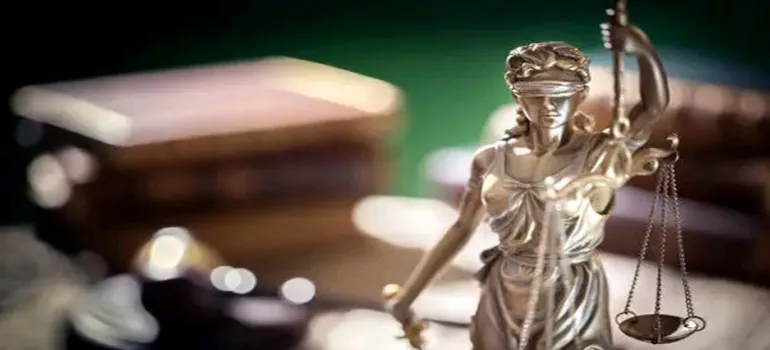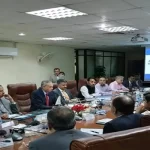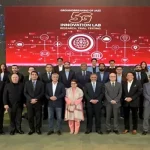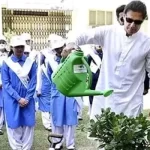
Corruption Control Update in Pakistan
Pakistan has struggled with corruption for many years, which has hampered development, damaged its reputation, and undermined public confidence in institutions. The nation continues to encounter formidable obstacles in the face of multiple attempts to eliminate corruption. This article explores Pakistan’s efforts to combat corruption today, looking at both the country’s achievements and its future challenges. Corruption Control Update in Pakistan
Pakistani Corruption Control
In Pakistan, corruption is still a major problem that impedes development, damages the country’s image, and erodes public confidence. With the creation of anti-corruption agencies, enhanced whistleblower protection, and the usage of technology to increase transparency, significant progress has been made in the battle against corruption. Nonetheless, obstacles continue to exist, such as governmental meddling, a slow-moving legal system, and socioeconomic elements that foster corruption. The way forward entails promoting political will, increasing public awareness, fortifying the rule of law, and carrying on with international cooperation. Pakistan can attempt to eradicate corruption and create the foundation for a more open and successful future by tackling these problems.
Developments in Anti-Corruption
1.1 Organizations Fighting Corruption
- Advertisement -
Pakistan has made progress in building and fortifying its anti-corruption agencies. The Federal Investigation Agency (FIA) and the National Accountability Bureau (NAB) have played a crucial role in the Cairn.info page prosecution of dishonest public servants and people. Many well-known individuals have been found guilty as a result of their efforts, sending a clear message that corruption will not be accepted.
1.2 Protection for Whistleblowers
Additionally, the government has adopted legislation to safeguard whistleblowers, encouraging people to denounce wrongdoing without worrying about retaliation. This legal structure improves openness and makes it possible to identify and prosecute corrupt activities more successfully. Corruption Control Update in Pakistan
1.3 Technology Use
Technology use has increased public service openness. Initiatives related to e-governance, like digital record-keeping and online tax systems, have decreased the opportunity for bribes and theft. Furthermore, it is now simpler to track down questionable transactions and instances of money laundering because to the digitization of financial transactions.
1.4 Global Collaboration
In the battle against corruption, Pakistan has demonstrated a willingness to collaborate with other nations and international organizations. The nation’s cooperation with institutions such as the United Nations and Transparency International demonstrates its dedication to tackling
Difficulties in Combating Corruption
2.1 Intervention in Politics
Political meddling is one of Pakistan’s biggest obstacles in the battle against corruption. Accusations of politically driven probes or witch hunts are frequently the result of corruption allegations against politicians. The legality of anti-corruption initiatives may be weakened by this circumstance, and the prosecution of dishonest officials may be impeded.
2.2 A Fragile Judicial System
Another significant barrier is Pakistan’s cumbersome and ineffective legal system. People may be discouraged from exposing corruption if there is a backlog of cases or lengthy judicial proceedings on the FIA ACW official website. Because they may not see justice served quickly. The nation must simplify its legal system in order to better manage corruption.
2.3 Reforming Institutions
Despite the establishment of anti-corruption institutions, questions remain about their efficacy. To raise their efficiency, substantial transformation, such as more independence, better staff training, and enhanced collaboration between stakeholders. Corruption Control Update in Pakistan
2.4 The Socioeconomic Elements
In countries where poverty and inequality are pervasive, corruption frequently flourishes. People may become desperate enough to resort to corrupt activities as a result of economic inequality. Fighting corruption from the ground up requires addressing these socioeconomic variables, including enhancing economic and educational opportunities.
The Path Ahead
3.1 Fortifying the Rule of Law
To hasten corruption cases, the legal system needs to be reformatted. Pakistan should prioritize streamlining judicial processes and making sure that disputes are addressed quickly. This will support the restoration of public trust in the legal system.
3.2 Will of Politics
Political leaders must demonstrate a sincere dedication to the fight against corruption. They ought to set a good example and abstain from meddling in inquiries into allegations of Corruption Control Update in Pakistan. Approaching this matter transparently and without bias is essential.
3.3 General Conscience
Campaigns for public awareness can provide citizens the capacity to expose corruption and demand accountability from public servants. This entails giving the public accessible channels for reporting corruption in addition to teaching them about the negative repercussions of the Corruption Control Update in Pakistan.
3.4 Global Collaboration
Pakistan ought to keep working with foreign groups, exchanging knowledge and best practices in the fight against corruption. The nation’s anti-corruption initiatives can be strengthened by the invaluable resources and insights that come from international assistance. Corruption Control Update in Pakistan

FAQs
Which organizations in Pakistan are the primary ones fighting corruption?
Federal Investigation Agency (FIA) and National Accountability Bureau (NAB) are two of Pakistan’s most important anti-corruption organizations.
What obstacles prevent Pakistan from controlling corruption?
Political meddling, a sluggish legal system, and the continued existence of corruption in spite of socioeconomic conditions are obstacles.
How can Pakistan step up its anti-corruption efforts?
Crucial actions include bolstering the rule of law, exhibiting political will, increasing public awareness, and sustaining international collaboration.
Why is public awareness so important in the fight against corruption?
Raising public awareness encourages citizens to expose wrongdoing and hold public servants responsible, which promotes transparency in society.
Conclusion
In Pakistan, the fight against corruption is still ongoing, with both significant victories and enduring obstacles. The development of anti-corruption agencies has advanced, yet obstacles like political meddling and a sluggish legal system still exist. To move forward, it is imperative to fortify the rule of law, guarantee political dedication, heighten public consciousness, and sustain global cooperation. Only by working together can Pakistan hope to end corruption and build a more open, equitable, and wealthy country for its people. Even if the trip will not be easy, it is worthwhile to pursue to improve Pakistan’s future.
More Read Clean and Green Pakistan







